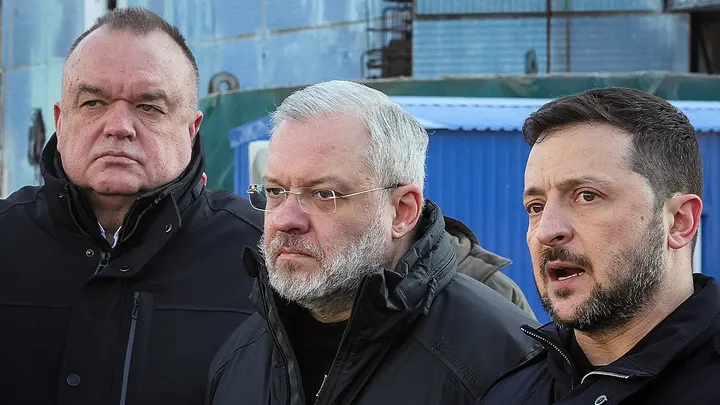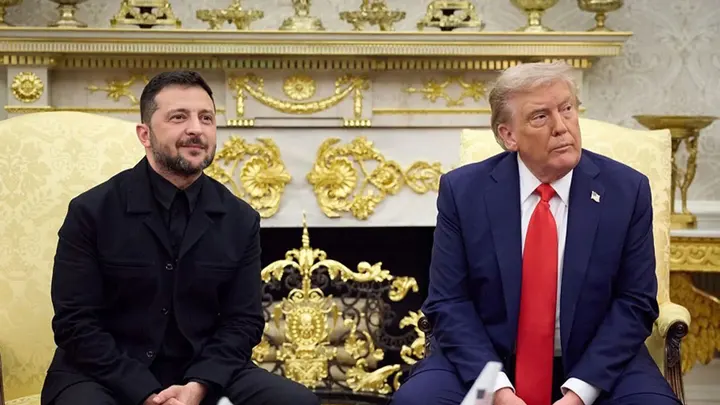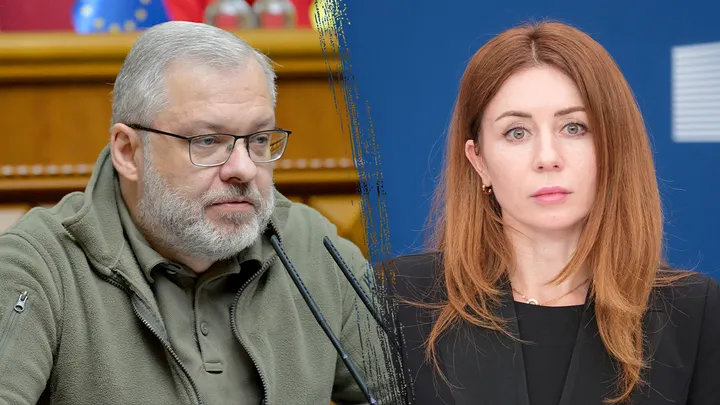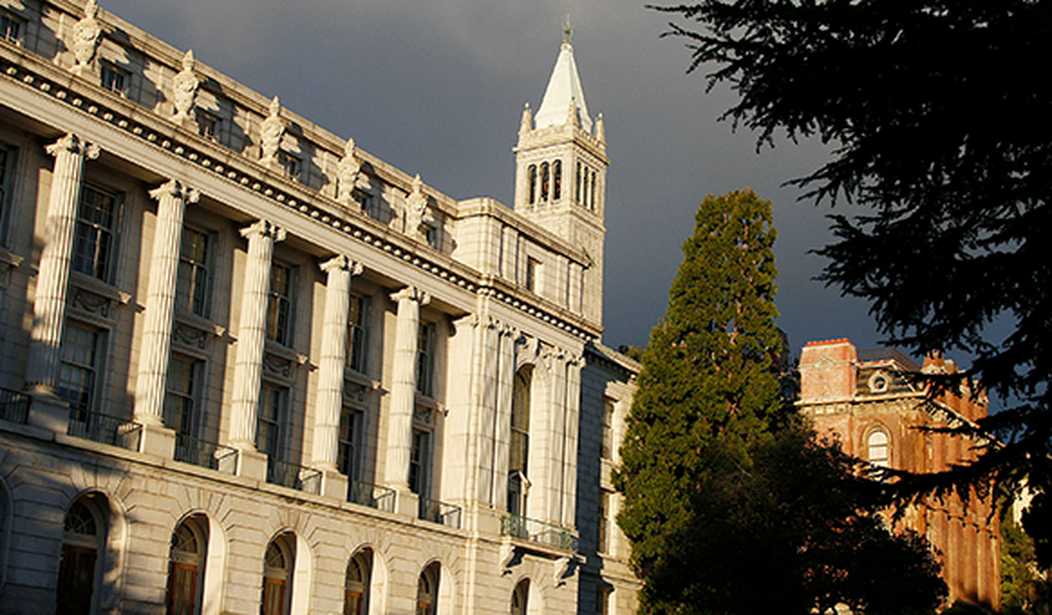The Trump administration has remained noticeably silent as a massive corruption scandal shakes Ukrainian President Volodymyr Zelenskyy’s government — a government Washington has poured billions into protecting. And honestly, after everything we’ve seen in Ukraine over the years, “corruption scandal” is starting to sound more like a weekly weather report than breaking news.
The White House declined to comment on a sweeping $100 million corruption probe that has already forced top Ukrainian officials to resign. Considering how much American taxpayers have sent overseas, you’d think the administration might have something to say — but apparently not today.
Corruption has always been a sore spot in U.S.–Ukraine relations. Back in 2019, the Trump administration paused roughly $400 million in military aid because it had legitimate concerns about Ukraine’s integrity — a move that critics screamed about at the time, but now looks more like common sense. Meanwhile, Democrats were busy defending Joe Biden while his son Hunter collected $50,000 a month from Ukrainian energy company Burisma. Totally normal, right?
Biden himself had famously pressured Ukraine to fire prosecutor Viktor Shokin by threatening to withhold $1 billion in loan guarantees. Shokin later said he was fired for investigating Burisma — a claim U.S. and European officials deny, but the timing has always been a little too convenient for anyone paying attention.
While all this unfolds, President Donald Trump has been working for months to negotiate peace between Russia and Ukraine — a conflict that has cost the United States around $175 billion since 2022. Yet Ukraine continues battling internal corruption fires that no amount of foreign aid seems able to extinguish.
Ukraine’s National Anti-Corruption Bureau (NABU) and its Special Anti-Corruption Prosecutor’s Office (SAP) announced details of “Operation Midas,” a 15-month investigation built on 1,000 hours of wiretaps. According to prosecutors, investigators uncovered a kickback scheme involving the state-owned nuclear company Energoatom, where contractors allegedly paid 10–15% bribes — totaling about $100 million — to secure government contracts.
Authorities say the alleged mastermind was Timur Mindich, a longtime associate of Zelenskyy, co-owner of his former production studio, and an advisor to Justice Minister German Galushchenko. Prosecutors claim Galushchenko helped facilitate the money laundering operation and acted under Mindich’s influence.
Mindich conveniently fled the country hours before investigators raided his home. Galushchenko and his successor, Energy Minister Svitlana Grynchuk, both resigned at Zelenskyy’s request. Five suspects have already been arrested, with seven more officially under suspicion.
NABU also alleged that some of the funds were transferred to an “unnamed former deputy prime minister,” internally labeled with the codename Che Guevara — because apparently even corruption schemes enjoy dramatic flair. Investigators traced roughly $1.2 million to that individual.

According to Ukraine’s anti-corruption agencies, the suspects used their government connections to control personnel decisions, procurement processes, and financial flows within the ministry and Energoatom.
Zelenskyy has not been personally implicated, but the scandal casts a long shadow over a president who built his rise on promises to end corruption. He publicly supported the investigation, saying that effective action and inevitable punishment are essential — strong words, though coming quite late in the game for a country drowning in graft.
Earlier this year, Zelenskyy faced backlash after attempting to expand presidential control over Ukraine’s independent anti-corruption agencies — a move he eventually backed away from. But the perception stuck: many Ukrainians now believe he is increasingly dependent on a tight inner circle operating with minimal oversight.

Before entering politics, Zelenskyy often joked about Ukraine’s corruption, famously asking whether it was possible to become president without stealing. Nearly seven years later, with elections suspended due to wartime conditions, that old joke is hitting a little too close to home.
Still, despite the chaos, the investigations, and the unanswered questions, there’s one thing we can end on positively: corruption is finally being confronted out in the open — and sunlight, as always, is the best disinfectant.



